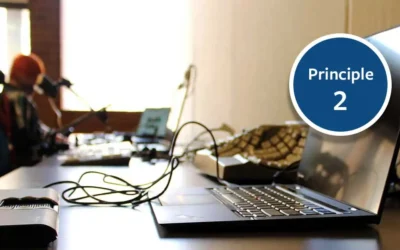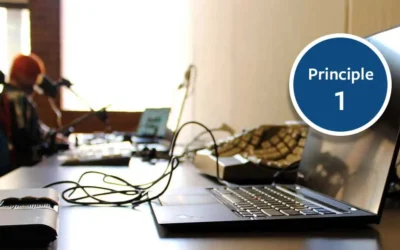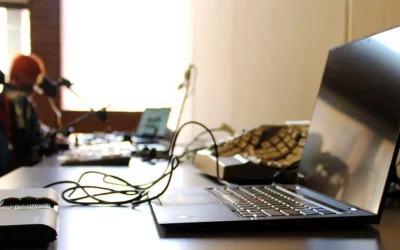3 Common Hurdles to Get Over and Get into Grants

Rachael Cristine Woody
As a business woman, I’m a big fan of reading business books to continue my education. While each book I read is specific to the author’s experience, there are lessons I can pick up and apply to my own business. However, sometimes it can be hard to apply the lessons because I’ve not removed hurdles that are in my way.
Since writing A Survivors Guide to Museum Grant Writing (available for free electronic download here) I’ve received wonderful feedback from the museum and archive communities. I’ve also received questions. The more you learn the more questions you have, right?
This post shares 3 questions I’ve received that highlight the common hurdles we have in our way when we first try to implement a grant writing practice.
Hurdle 1: We’re new to the field and new to grant writing
Question: I’m new to both grants and archives. With that in mind, what are the best few pieces of advice for someone who is unsure of how to accurately identify funding opportunities and write grant applications?
I recommend reaching out to your local granting agencies. For example, I’m in Oregon (US) and there’s the Oregon Heritage Commission that runs or is aware of relevant grant programs. Each state, US territory, or Canadian province will have an office that provides a similar function. Find out who your local heritage/history/preservation offices are and what programs, training, and grants they offer. Their job is to help and support you—and if they don’t have the right resource, they should be able to point you to others.
Another reason I recommend getting to know your local offices is because I typically recommend clients start with acquiring local grants before they work up to big, national grants. Local grants are usually less burdensome in terms of time and intensity for the application. Additionally, they help you demonstrate grant success at the local level and show the larger, national grants that you know what you’re doing.
Finally, once you do select a grant and go for it, I recommend you run it by one of the grant representatives for informal feedback. Many funding agencies offer this service (as long as you can provide the application ahead of the deadline) as they want strong applicants who will be successful in supporting both their and your mission.
Hurdle 2: We have a small staff and competing priorities
Question: I have a small staff and a few volunteer workers. It’s hard to find the time to research grant opportunities, and even harder to find time to apply for them. Usually my time is taken up with outreach or other project activities, leaving little (if any) time for grant writing. What have you found is a good strategy for balancing all the competing, often time-sensitive demands?
This is a difficult one and a very real problem for many of us. While I know it’s often hard to carve out the time, it is a necessary thing to do. Committing to a grant practice is quite literally an investment and one that should be prioritized when possible. Here are my two recommendations:
- To make it easier, reflect on what may be quieter times in your year. Grant strategizing can take place during these quiet times. And of course, the more you look and apply for grants, the faster and easier it will be.
- Experiment with time blocking. I find I am more efficient when I can focus on projects for hours at a time. To facilitate this, I block out large chunks of my schedule and dedicate it to one activity or project.
While it is definitely important to conduct outreach and work on projects, it’s equally important that you find balance in your schedule for other activities—especially if those activities could make your life easier in the long-term. For example, investing time to write a grant application for funding a temporary project person would certainly go a long way in helping to free you up for other priorities.
Hurdle 3: We have a board that doesn’t quite understand what needs to be done or how to do it
Question: How do you communicate with boards or other governing bodies who have ideas about what they want the organization to do, but don’t always have a sense for how to do it?
Another excellent question. Boards often have big-picture vision which, to be fair, is exactly what they need to help guide the organization. But if a Board doesn’t understand the nuts and bolts of what that vision entails it can be difficult for them to help support (or appreciate) the work needed to support that vision. Here are three options to consider:
- Provide a tour or hands on demonstration of the work can also help to convey the work necessary for the project/vision.
- Solicit bids from consultants can help because then it’s on the expert to provide what they think the scope of work will entail and cost.
- Request an assessment from a consultant. Assessments can be extremely helpful in this circumstance because it provides an assessment of the current status and offers recommendations for how the organization can move forward and improve.
Assessments do cost money, but they are another great investment, because they: 1. Can help to outline the work needed; and 2. They can be used to help lobby a funding agency during a grant application. Both consultant bids and assessments can go a long way to legitimize your request for money and show agencies that you know exactly what you need to do and how.

Rachael Cristine Woody
Rachael Cristine Woody has worked and advised on museum grant writing strategies and collections management at institutions like the Freer|Sackler Museum of the Smithsonian Institution, and the Oregon Wine History Archive at Linfield College. Read more of Rachael’s posts on museum strategies for success. See also more on Lucidea’s Argus solution for museum collections management and digitization.
Similar Posts
Museum Collections Online with Accessibility Principle 2: Operable
Compliance with WCAG Version 2.1 Principle 2: Operable
Museum Collections Online with Accessibility Principle 1: Perceivable
Compliance with WCAG Version 2.1 Principle 1: Perceivable, affecting information published from museum CMS to an online portal; expert guidance
Accessibility Standards for Museum Collections Online
A museum’s compliance with the ADA Title II 2024 update has benefits for its online content and for the museum’s community of users.
Museum TrendsWatch 2024: Digital Twins and Doom Loops & Combatting the Loneliness Crisis
Digital Twins is the construction of a digital surrogate for a person, place, or thing—one of several new concepts and trends in the museum sector.




Leave a Comment
Comments are reviewed and must adhere to our comments policy.
0 Comments